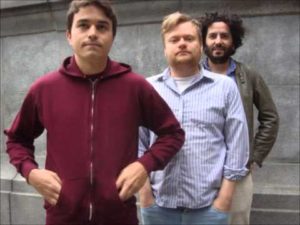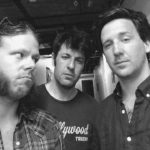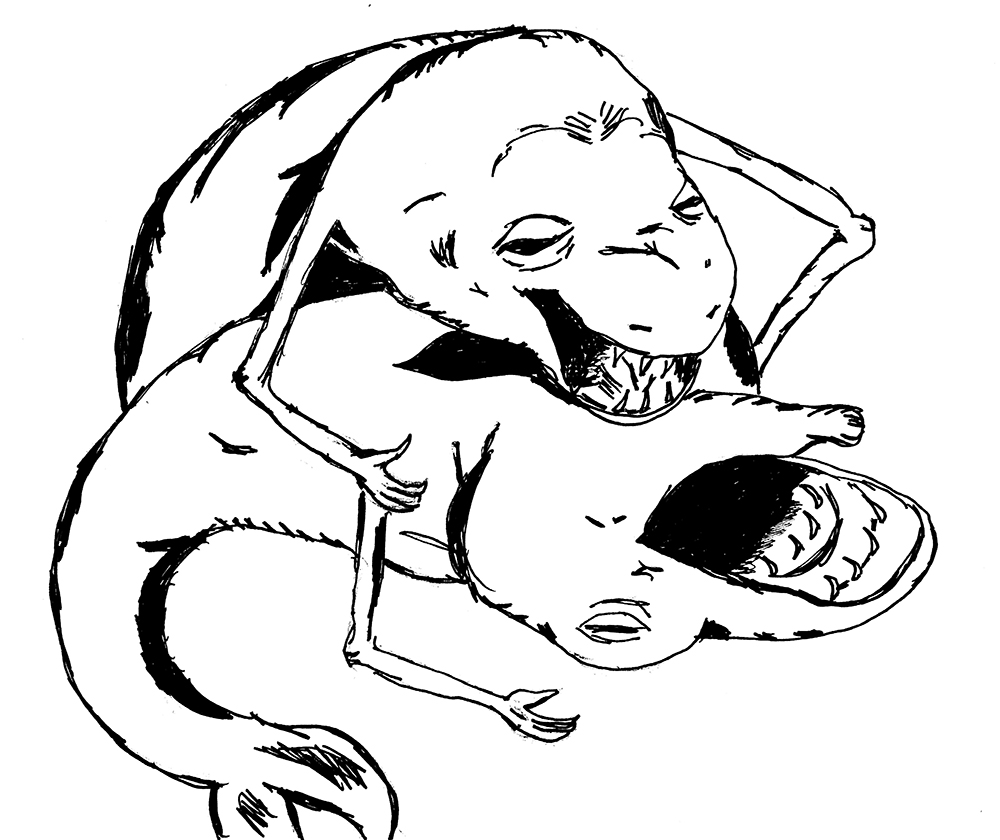Supergroups are strange beasts. Jann Wenner claims that Cream, with members from the Yardbirds, the Graham Bond Organization, and John Mayall and the Bluesbreakers, was rock’s first supergroup – soon to be followed by Crosby, Stills, Nash and Young; Blind Faith; and Derek and the Dominos. More recently, the likes of the New Pornographers, Audioslave, and Swan Lake have played a similar role despite rock bands having considerably less cultural import than during the last century (imagine kids scrawling “Krug is God” on a subway wall somewhere circa 2006). Nevertheless, the idea of separately established musicians, especially songwriters, joining forces on a new project still toes the line between curiosity and genuine excitement in certain circles. In the Ball of Wax universe, largely bound by the Puget Sound but expanding to pockets of musical obscurists the world round, the Cupholders are a supergroup. Bart Cameron of the Foghorns, Sam Russell, and Casey Ruff are all established songwriters, performers, and musicians-about-town whose aesthetics overlap in a battered suitcase filled with Booker T, Waylon Jennings, and Bruce Springsteen records; unpretentious plaid shirts; un-ironic belt buckles with the logo of a Milwaukee minor-league hockey team or maybe the Sundowner casino in Reno; a VHS copy of Repo Man; guitar picks; a cheap overdrive pedal; and a dog-eared copy of Bob Dylan’s Chronicles that’s always on the verge of being deciphered. Can you smell the Rainer yet? Can you hear the guitars tuning onstage?
After issuing 2018’s holiday single, “This Christmas Don’t Be a Dick”, the Cupholders have braved the inanity of modern indie music-making and try-anything marketing by putting out a series of digital-only EPs to promote local Seattle shows – namely the Tractor and Conor Byrne EPs. Both EPs are great, with songwriters and lead vocalists shifting from song to song bound by a certain American spirit of chaos and exhaustion. The Cupholders’ latest release is a collection of various versions of the song “Wisconsin Polka,” which was written by Cameron and first appeared on the Foghorns …on a Dog’s Ass Sometime release.
The Cupholders Present . . . “The Wisconsin Polka!” is sort of a hyper-regional tone poem crumpled up in the pocket of a vintage vinyl jacket, opening up with a recording of the Reuther Central High Marching Band, which is kind of like Fleetwood Mac’s Tusk featuring the USC Marching Band recalibrated to the band’s relative hubris (no offense, Lindsey Buckingham). The Foghorns’ original version comes next, and it’s infused with the kind of punkish, barn-burning energy the band tends to run on as one of their sets at Conor Byrne’s rambles past 1am or so. Casey Ruff’s version, a duet with the talented Joy Mills, transforms the polka into a sad cowboy driving song, just voices and acoustic guitar – the kind of song Jay Farrar sings about in Son Volt’s “Windfall.” Sam Russell and his Harborrats turn the song into something out of Dylan’s Desire period, pairing a martial waltz beat with sinewy fiddle and a massive chorus that seems to goad Sam on as he pushes his textbook rock and roll preacher voice to the brink. I recorded a version as Virgin of the Birds (as I’m apt to do), adding both lyrics and an extra beat per measure, thus undermining the structural premise of the polka – but Ken Nottingham’s fretless electric bass slides win the day (to these ears, anyway). Finally, the unified Cupholders take hold of the song – more like kidnap it. The performance breathlessly tries to keep up with itself, vocals are traded between Sam and Bart, things are yelled from the background by a chorus of lovable miscreants, a guitar solo attempts to squeeze its way in somewhere, and Lauren Trew’s baritone saxophone adds gravitas and some semblance of order. It’s a recording that has life – messy, crowded, generous life – which is the whole point of the song in the first place.
By any account I am not, and cannot be, objective about the Cupholders and this project. Sam mentioned the idea of this EP countless months ago and I couldn’t have been more on board. Folk music is as much about interpreting and passing on songs as it is writing new ones (does the world need any more?), and Bart’s parochial anthem of aging, disappointment, and life-giving lust is well-worth exploring. I also did the artwork for the CD, with a sentimental Christmas sweater motif for the cover and a pair of crudely hand-drawn demon porpoises fornicating on the CD face because I’m a veritable mess.
On Saturday, January 18th, the Cupholders bring this project to life at the Tractor Tavern in Seattle. If you’ve read this far, you’ll probably be there if you can – how could you not?




I like the song and the lyrics, and I appreciate the nod to polka, BUT…. This would have been so much better if at least one of the versions was played as an actual polka. Some of them are sort of close, but they’re still waltzes. The project as a whole leaves me a little confused and disappointed as a result. Is “polka” in this context just a reference to the Wisconsin state (of mind)? The actual joy of polka is missing.
I mean I wrote the song and I agree. My drummer refused to play polka. The accordion player, who like me is from Wisconsin, did play polka proper. Everybody else I play this with abjectly refuses. I think polka doesn’t mean the same thing to very many people. However I do think lyrical content for polka should not be limited to barrels of beer. Hopefully someday I can write my polka opera version of Magic Mountain. Anyway the varied interpretations of polka and Wisconsin has been something, and I believe these other writers maybe got more out of wisconsin and polka than I could have.
Hey Margaret!
Sam from The Cupholders here! I suspect Bart (consciously or not) designed the song to have a polka feel without actually being one to make the romanticized notion of a “Wisconsin Polka” seem unattainable. The other covers all interpret the song this way to the point of one of them (Virgin of the Birds) being a 4/4 funky groove.
I agree it would have been cool to have a straight polka version too. However, this EP came about because a couple of us covered the song independently and without knowing the separate versions would all be on one EP. Thus, the diversity (or lack of) in approaches was not strategic.
But thanks to you we now have a new band goal of someday attempting an authentic polka, which should be amusing for the musicians and audiences alike.
In my defense, I listened to so much Lou Reed growing up that I can only play in 4/4 time.